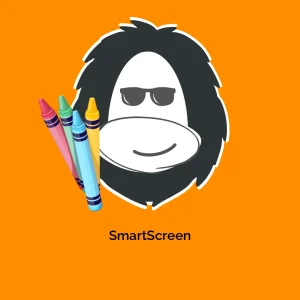Exploring the World of Education: Key Insights and Modern Trends
Education is a cornerstone of development and progress, influencing every facet of society. From early childhood education to adult learning, the landscape of education has evolved significantly, driven by technological advancements and the growing recognition of diverse learning needs. In this piece, we will delve into the importance of education, the various types of educational systems and methodologies, and the trends shaping the future of learning.
Development
The Importance of Education
Education is fundamental to fostering knowledge, skills, and critical thinking. It serves as the bedrock of personal development and societal improvement. An educated populace is essential for a thriving economy and vibrant culture. Education empowers individuals, helping them to understand their rights and responsibilities, and it encourages social participation.
There are numerous benefits associated with education. For instance, studies have shown that higher levels of education correlate with improved job opportunities and higher income levels. The World Bank highlights that each additional year of schooling can increase a person’s income by about 10% on average. Education also promotes health awareness, civic participation, and social cohesion.
Early Childhood Education
Early childhood education (ECE) plays a crucial role in a child’s development. This phase from birth to age eight is foundational for cognitive, emotional, and social growth. Programs focusing on ECE typically engage children in activities that promote learning through play, fostering creativity and problem-solving skills essential for future educational endeavors.
Examples of such programs include pre-kindergarten and nursery schools, which often use thematic learning approaches, helping children explore concepts through storytelling, music, and art. The significance of quality early education cannot be understated; according to the National Institute for Early Education Research, children who attend quality pre-school programs are more likely to succeed in school and life.
K-12 Education
K-12 education encompasses primary and secondary schooling. This system varies worldwide but generally includes education from kindergarten through 12th grade. The K-12 structure aims to provide students with a comprehensive education, developing key competencies in various subjects.
Innovative teaching methods, such as project-based learning and blended learning, have gained traction in K-12 institutions. Project-based learning encourages students to engage in real-world problems and develop solutions, fostering teamwork and critical thinking. Meanwhile, blended learning combines online digital media with traditional classroom methods, allowing for a more personalized learning experience.
Moreover, the integration of technology in K-12 education has made learning more engaging and accessible. Classrooms now often feature interactive whiteboards, tablets, and online resources, catering to different learning styles and making education more diverse.
Higher Education
The importance of higher education cannot be overstated in today’s competitive job market. Colleges and universities provide opportunities for individuals to specialize in various fields, enabling them to pursue careers aligned with their passions and skills. Higher education institutions have also become hubs for research and innovation, contributing significantly to advancements in science, technology, humanities, and more.
According to data from the U.S. Bureau of Labor Statistics, individuals with a bachelor’s degree earn, on average, 65% more than those with just a high school diploma. Higher education not only leads to better job prospects but also encourages more informed citizenry capable of participating in democratic processes.
Online learning has revolutionized higher education in recent years, making it accessible to a broader audience. Online courses, often referred to as massive open online courses (MOOCs), have democratized education, allowing individuals to learn from prestigious institutions worldwide regardless of their geographical location. This trend has made education more flexible, enabling learners to balance work and study while pursuing their interests.
Lifelong Learning
In the rapidly changing world characterized by technological advancements and global interconnectedness, lifelong learning has emerged as a vital concept. Lifelong learning encourages individuals to continually seek knowledge and skills throughout their lives. It’s increasingly recognized as essential for adaptability in the workforce, particularly in fields experiencing rapid change.
Vocational education and training programs are invaluable for those looking to enhance their skills or pivot to new career paths. This form of education emphasizes practical skills applicable to specific jobs and industries. The economy greatly benefits from a workforce that can retrain and adapt to new challenges and opportunities.
Additionally, professional development courses and workshops have become popular for maintaining up-to-date skills in various professions. Industry certifications now carry substantial weight and can bolster a resume, providing evidence of ongoing professional growth.
Global Perspectives on Education
Education systems vary widely across the globe, influenced by cultural, economic, and political contexts. For example, Finland is renowned for its progressive education system, emphasizing student well-being, equity, and creativity over standardized testing. Students in Finland enjoy minimal homework and have longer recesses, promoting a balanced approach to education focusing on mental health and physical activity.
In contrast, education systems in some countries may still emphasize rote memorization and high-stakes testing. Such approaches often create a high-pressure environment for students, potentially stifling creativity and critical thinking. It’s essential to recognize the diversity in educational practices and promote systems that prioritize holistic development.
The Role of Technology in Education
In the 21st century, technology has arguably had the most significant impact on education. E-learning platforms, educational apps, and interactive software are revolutionizing how knowledge is delivered and acquired. For instance, platforms like Khan Academy offer free online courses, enabling learners worldwide to access quality educational resources.
Furthermore, adaptive learning technologies are personalizing education, tailoring content to fit the unique needs of each learner, thus supporting diverse learning paces and styles. Virtual reality (VR) and augmented reality (AR) are also gaining traction in educational settings, offering immersive learning experiences that can enhance understanding and retention.
Challenges in Education
Despite the advancements, the education sector faces several challenges. Inequity remains a significant issue, with marginalized communities often lacking access to quality education. The digital divide has also become increasingly visible during the COVID-19 pandemic, highlighting the need for improved access to technology and the internet for all learners.
Moreover, educators continually confront the challenges of maintaining engagement and motivation among students. The traditional lecture model is often ineffective for diverse learners, necessitating a shift toward more interactive and engaging teaching strategies.
Educational institutions must also adapt to the changing job landscape, ensuring that curricula are aligned with the skills and knowledge demanded by employers. Collaboration between educational institutions and industry has never been more critical for preparing students for the future workforce.
The Future of Education
Looking ahead, the future of education will likely be shaped by several key trends. First, technology integration will continue to grow, making education more accessible and efficient. Hybrid learning models combining in-person and online instruction may become the standard, promoting flexibility and adaptability.
Furthermore, there is likely to be a greater emphasis on social-emotional learning (SEL), recognizing the importance of emotional intelligence and interpersonal skills alongside traditional academic achievements. SEL programs can help students develop resilience, empathy, and effective communication skills, all vital for success in life.
Lastly, inclusivity in education is set to gain more attention. Policies and practices will increasingly strive to accommodate diverse learning needs, ensuring that every student has the opportunity to thrive. As society progresses, a collective acknowledgment of the significance of education will drive innovations that meet the evolving demands of learners.
By understanding the multifaceted nature of education, individuals and societies can work towards building a brighter, more equitable future through learning. Education is not simply about acquiring knowledge; it’s a lifelong journey that shapes our perceptions, relationships, and overall contributions to society.
Education: Download for Free on OrangoGPL
Certainly, is possible and 100% law-abiding.
Moreover, even downloading a cracked Education is law-abiding, and this is because the license it is distributed under is GPL (General Public License), and this license permits anyone all kinds of code modifications.
Thus, there’s no reason to worry: If you wish to buy Education cheaply or, directly, to download Education Themes nulled to obtain it one hundred percent free, on OrangoGPL, you can do it easily and legally.
Download Education GPL: The solution for startup entrepreneurs
We don’t care what you call it: Buying Education on resale, download Education Themes GPL, download Education without license or download Education Themes cracked.
It is something absolutely legitimate and something essential for every beginner entrepreneur.









Reviews
There are no reviews yet.